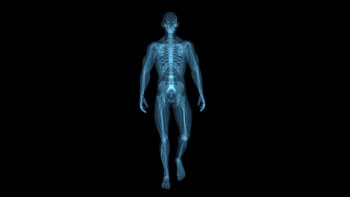
The Thallium Stress Test, or Nuclear Stress Test, is a non-invasive imaging technique employed to evaluate the blood flow to the heart during rest and stress conditions.
Thallium Stress Test or Nuclear Stress Test in India with Cost
Thallium Stress Test or
Nuclear Stress Test in Detail: Unveiling Cardiovascular Health with
Radiological Precision
In the realm of cardiovascular diagnostics, the Thallium Stress Test, also known as the Nuclear Stress Test, stands as a sophisticated imaging procedure designed to assess the blood flow to the heart muscle under stress conditions. This comprehensive guide aims to elucidate the significance, procedure, and applications of the Thallium Stress Test, providing a detailed understanding of its role in modern cardiovascular healthcare.
Introduction
The Thallium Stress Test, or Nuclear Stress Test, is a non-invasive imaging technique employed to evaluate the blood flow to the heart during rest and stress conditions. This diagnostic tool is particularly valuable in identifying coronary artery disease (CAD), assessing heart function, and guiding treatment decisions.
Understanding the Thallium Stress Test
Radioactive Tracer Administration:
The Thallium Stress Test involves the injection of a radioactive tracer, often thallium-201 or technetium-99m sestamibi, into the bloodstream. This tracer has a particular affinity for heart muscle cells.
Rest and Stress Imaging:
The test comprises two phases – rest and stress. During the rest phase, images of the heart at rest are obtained. Subsequently, the patient undergoes a stress-inducing activity, typically exercise on a treadmill or administration of a medication, and images are taken again to capture the heart's response to stress.
Gamma Camera Imaging:
A gamma camera captures the distribution of the radioactive tracer, producing detailed images of blood flow to the heart under both rest and stress conditions.
Importance in
Cardiovascular Imaging
The Thallium Stress Test holds paramount importance in various aspects of cardiovascular health:
Coronary Artery Disease Detection: Essential for
identifying areas of reduced blood flow to the heart muscle, indicative of
coronary artery disease.
Assessment of Heart Function: Aids in
evaluating the overall function of the heart, particularly its response to
stress.
Treatment Planning: Assists in
guiding treatment decisions for individuals with suspected or diagnosed
cardiovascular conditions.
Preparation for the
Thallium Stress Test
Preparation for a Thallium Stress Test typically involves:
Fasting: Patients are often required to
fast for a specific duration before the test for optimal imaging results.
Medication Adjustments: Temporary
cessation or adjustment of certain medications that may interfere with the test.
Procedure: Evaluating
Cardiovascular Response
Resting Images: The patient receives the radioactive tracer at
rest, and images of the heart at rest are obtained.
Stress Phase: The patient either engages in
exercise on a treadmill or receives medication to induce stress. Subsequent
images capture the heart's response to stress.
Gamma Camera Imaging: The gamma
camera captures images at rest and stress, providing a comparative analysis of
blood flow to the heart under different conditions.
Assessment Areas in the
Thallium Stress Test
The Thallium Stress Test is employed to assess various aspects of cardiovascular health, including:
Coronary Artery Disease Detection: Identifying
areas of reduced blood flow, indicative of blockages or narrowing of coronary
arteries.
Heart Function Evaluation: Assessing the
heart's ability to respond to stress and its overall function.
Benefits of the Thallium
Stress Test
Accurate Disease Detection: Provides accurate and
detailed information about blood flow to the heart, aiding in the detection of
coronary artery disease.
Functional Assessment: Evaluates the
functional capacity of the heart under stress, contributing to a comprehensive
understanding of cardiovascular health.
Treatment Guidance: Assists
healthcare providers in making informed decisions about treatment strategies
based on the test results.
Risks and Considerations
The Thallium Stress Test involves exposure to low levels of radiation. However, the benefits of accurate cardiovascular assessment generally outweigh the associated risks.
Clinical Applications
The Thallium Stress Test finds applications in various clinical scenarios, including:
Coronary Artery Disease Diagnosis: Crucial for
identifying and characterizing coronary artery disease.
Treatment Planning: Aids in guiding treatment decisions for
individuals with cardiovascular conditions.
Expert Perspectives
Cardiologists and nuclear medicine specialists collaborate to interpret Thallium Stress Test results, providing expert insights into cardiovascular health.
Technological Advancements
Continual advancements in imaging technology contribute to the refinement of Thallium Stress Tests, enhancing image resolution and diagnostic capabilities.
Patient Experience
While the Thallium Stress Test involves exposure to radiation, it is generally well-tolerated by patients. The procedure provides valuable information to healthcare providers without invasive measures.
Conclusion
In conclusion, the Thallium Stress Test, or Nuclear Stress Test, serves as a cornerstone in cardiovascular imaging, offering a comprehensive evaluation of blood flow to the heart under both rest and stress conditions. Its applications in coronary artery disease detection, heart function assessment, and treatment guidance contribute to advanced and personalized cardiovascular healthcare.
Frequently Asked
Questions (FAQs) related to the Thallium Stress Test or Nuclear Stress Test
Q: Is the Thallium Stress Test safe, considering the use of radioactive tracers?
A: Yes, the Thallium Stress Test is considered safe. The amount of radiation exposure is typically minimal, and the benefits of accurate cardiovascular assessment outweigh the associated risks.
Q: How long does the Thallium Stress Test procedure take?
A: The duration of the Thallium Stress Test can vary but generally takes around 3 to 4 hours. This includes the rest phase, stress phase, and the imaging process.
Q: Can individuals with certain medical conditions undergo the Thallium Stress Test?
A: Individuals with certain medical conditions, such as severe asthma or other respiratory issues, may not be suitable candidates for the stress-inducing exercise part of the test. In such cases, alternative stress-inducing methods or tests may be considered.
Q: Is there any preparation required before the Thallium Stress Test?
A: Yes, there is preparation involved. Patients are often required to fast for a specific duration before the test, and adjustments to certain medications may be necessary. It's essential to follow the pre-test instructions provided by the healthcare provider.
Q: How does the Thallium Stress Test differ from a standard exercise stress test?
A: The Thallium Stress Test includes the injection of a radioactive tracer, allowing for imaging of blood flow to the heart under stress conditions. This provides additional information compared to a standard exercise stress test, which primarily monitors the heart's response to physical exertion.
Q: Can the Thallium Stress Test detect conditions other than coronary artery disease?
A: Yes, the Thallium Stress Test can provide insights into various cardiovascular conditions, including heart function abnormalities and the presence of coronary artery disease. It is a versatile diagnostic tool used for comprehensive cardiovascular assessment.
Q: Are there any age restrictions for undergoing the Thallium Stress Test?
A: There are typically no strict age restrictions. The suitability for the test is determined based on an individual's overall health and medical history. The test may be recommended for individuals of various age groups.
Q: Is the Thallium Stress Test painful?
A: The Thallium Stress Test itself is not painful. The injection of the radioactive tracer may cause a slight discomfort similar to any routine injection. The stress inducing part of the test, whether through exercise or medication, may induce fatigue but is generally well-tolerated.
Q: How soon can individuals resume their regular activities after the Thallium Stress Test?
A: Most individuals can resume their regular activities immediately after the Thallium Stress Test. However, it's advisable to follow any specific post-test instructions provided by the healthcare provider.
Q: Can pregnant or breastfeeding women undergo the Thallium Stress Test?
A: Pregnant and breastfeeding women are generally advised to avoid the Thallium Stress Test due to the use of radioactive tracers. Alternative diagnostic approaches may be considered in such cases.
These additional FAQs aim to address common queries individuals may have about the Thallium Stress Test, providing a more comprehensive understanding of the procedure.
(0)
Login to continue



